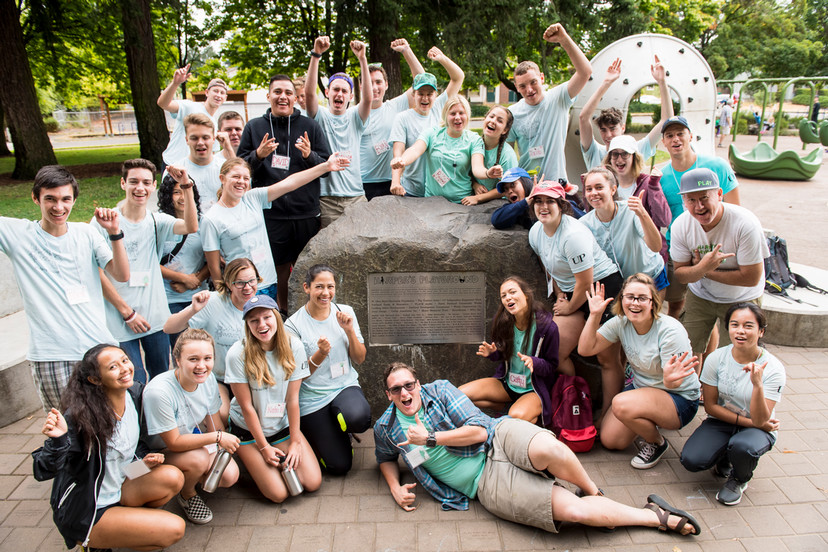
About the Moreau Center for Service and Justice
Inspired by the vision of Christian Education written by Blessed Fr. Basil Moreau, C.S.C., founder of the Congregation of Holy Cross, the MCSJ promotes the integration of Catholic social teaching into the lives of our students. Guided by the mission of the University, the MCSJ programs promote service and justice.
Service and community engagement involve directly connecting with people and programs that reflect mutual dignity and are meant to be beneficial to all involved.
The Center and our students who participate address real community needs while allowing students to encounter and critically examine issues of injustice and intersectional oppression. Students engaging with people whose life experience and perspectives may be different from their own, helps to break down fears, stereotypes, and apathy and often inspires people take action.
We encourage students to make a commitment to ongoing community engagement, and thus share in the Center's goals:
- Educate students in the tradition of Catholic social teaching
- Help students integrate their academic studies with current issues and events
- Encourage students to think critically about their ideas and values
- Move students to concrete action
Moreau Center Core Commitments
Our programs that reflect Catholic social teaching can be summarized in the following commitments:
Social Justice
Catholic social teaching emphasizes the dignity of all human life, preferential option for the poor, and consideration of the common good. Educational and reflection opportunities embedded in our programs allow for participants to come to a deeper understanding of self as well as the political, social, economic, and religious issues connected to their volunteer experiences. Participants gain a sense of how their unique interests, talents, and skills can affect social change and consider their responsibility to take action.
Community
Participants in Moreau Center programs learn what community is by directly experiencing it. Each participant takes the time to listen to and respect others and offer their own ideas and resources. Shared responsibility for meal preparation and group reflection are expected during immersion experiences. Participants enter communities they visit with humility and respect and engage as curious students and grateful guests in the community’s customs and culture.
Solidarity
Solidarity is a belief that we are one human family whatever our national, racial, ethnic, economic, and ideological differences. One of the most common ways to practice solidarity is through voluntary simplicity. We plan immersions, events, and programs with cost effectiveness in mind. This reduces the finances required by participants and advances our commitment to living in solidarity with the often under-resourced communities and organizations that host us. This may take the form of being open to simple accommodations, observing local customs and culture, patronizing local business and services, or listening to and learning from local people outside of formal gatherings.
Reflection
Reflection is central to all we do. Our programs and service experiences often stimulate profound questions and offer an opportunity to intentionally explore them. As part of reflection, participants may draw on their faith tradition and engage in social analysis.
Our Definition of Service
Inspired by the Holy Cross call to cross borders of every sort and its charism, service at the University of Portland is defined as intentional engagement with local, regional, or global communities, particularly those who are marginalized or vulnerable, in order to promote social justice and the common good. We value collaborative partnerships that encourage reciprocity and reflective practices within and beyond the UP community.

View our 2024-25 Newsletters to learn more about our most recent events and upcoming opportunities with the Moreau Center!

